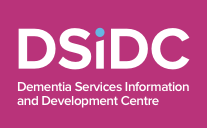Age Well – Challenges for individuals and Society
 The work presented at this Symposium is part of the DSIDC’s Living with Dementia research programme funded by the Atlantic Philanthropies and conducted in The School of Social Work and Social Policy at Trinity College Dublin. The LID programme is committed to empowering and giving voice to people affected by dementia. It supports research projects that aim to make a real difference to the lives of all those affected by Alzheimer’s disease and the related dementias. The programme is also committed to de-stigmatizing dementia and dispelling some of the myths widespread in society about this illness. Ultimately the programme is concerned with capacity building, and improving and expanding services for all those affected by dementia. It also seeks to ensure that research findings are disseminated to a wider audience both nationally and internationally. This Nordic Congress provided an excellent opportunity for the achievement of this latter goal of research dissemination.
The work presented at this Symposium is part of the DSIDC’s Living with Dementia research programme funded by the Atlantic Philanthropies and conducted in The School of Social Work and Social Policy at Trinity College Dublin. The LID programme is committed to empowering and giving voice to people affected by dementia. It supports research projects that aim to make a real difference to the lives of all those affected by Alzheimer’s disease and the related dementias. The programme is also committed to de-stigmatizing dementia and dispelling some of the myths widespread in society about this illness. Ultimately the programme is concerned with capacity building, and improving and expanding services for all those affected by dementia. It also seeks to ensure that research findings are disseminated to a wider audience both nationally and internationally. This Nordic Congress provided an excellent opportunity for the achievement of this latter goal of research dissemination.
The Symposium brought together a group of young academics, most of whom have recently graduated from Trinity College Dublin, with PhDs in the area of ageing and dementia. The central theme of this Symposium was on public attitudes to dementia, stigma and psycho-social service interventions. Dr Emer Begley opened the Symposium by presenting findings based on a research study, where she looked at the service needs and service usages of a group of people recently diagnosed with dementia. Her work was the first of its kind in Ireland to attempt to gain insights from people with dementia themselves on their views of service needs and service supports in the period immediately following their diagnosis. Dr Maria Pierce followed, by reporting findings from a new Genio in-home respite intervention, recently introduced and being trialled in a rural setting in Ireland. This new service augments rather than substitutes for current statutory service provision. Maria’s presentation pointed to some of the excellent outcomes derived from such an intervention both for the individual and for the family member. Dr Andrea Bobersky then spoke about her PhD research where she looked at transitions into long-term care for people with dementia, their family caregivers and for paid care staff. Her work demonstrated the paucity of community care services in use prior to long term residential care placement and the way in which family members were obliged to make life changing decisions about long term care placement in a rushed way, sometimes over night. Her work also showed how stressful it is for paid care staff coping with new admissions into long term care particularly when family members tell lies or half truths to their relatives about the nature of the relocation. The final speaker was Vanessa Moore who presented findings on General Practitioners’ attitudes to diagnosing and disclosing dementia, based on a recent cross-national study of Irish and Swedish medical practitioners.
The discussant Associate Professor Suzanne Cahill reported on current and future dementia prevalence rates in Ireland and provided a broad overview of Irish dementia care policy. She then drew out the main themes emerging from each of these four papers and discussed them against the backdrop of policy trends internationally, Ireland’s forthcoming National Dementia Strategy and ageing and dementia care practice in Ireland.
